The earth’s ecosystems comprise millions of species and underpin the well-being of all human societies. Knowledge about these ecosystems is our strongest tool to ensure the future of life on our planet — yet much of the natural world remains poorly known and unexplored.
Our role
Conservation International’s Rapid Assessment Program (RAP) works to fill this void. RAP, founded in 1990, sends teams of experts on short expeditions into critically important field sites around the world. Experts at these sites evaluate the state of a region’s biodiversity, the health of its ecosystems and the multiple benefits that nature provides to people. By doing so, RAP provides information that can guide effective decision-making about conservation.
Our plan
Today, RAP is evolving and expanding its scope. Building on the program’s legacy of discovering and assessing species, our strategy for RAP now integrates our understanding of the vital links among biodiversity, healthy ecosystems and human societies.
RAP surveys help provide the scientific foundation to:
- Design and create effective protected areas
- Work with communities to develop community-based conservation initiatives
- Assess, monitor, minimize and/or offset negative environmental and social impacts of major infrastructure and extractive projects
- Assess ecosystem vulnerability to climate change
- Support sustainable management of wild food sources (e.g., fish, bushmeat) and other ecosystem services (e.g., fresh water)
- Monitor environmental health and the status of threatened species
- Train the next generation of scientists and conservationists
- Engage and inform stakeholders, policymakers and the public
By the Numbers
20 million hectares
RAP has supported the creation, expansion and improved management of more than 20 million hectares (nearly 50 million acres) of marine and terrestrial protected areas — in addition to the discovery of more than 1,400 species new to science.
Standard field research takes years, but political leaders will not usually wait that long to make decisions affecting the most biologically important areas of Earth. RAP gathers relevant scientific information quickly enough to aid in protecting such places from irreversible damage that can occur on a very short time scale.
Murray Gell-Mann, Professor, Santa Fe Institute, and 1969 Nobel Prize recipient
How RAPs work
http://www.conservation.org On a Rapid Assessment Program (RAP) survey in Papua New Guinea's Muller Mountains in 2009, CI's Leeanne Alonso and Stephen Richards explain the purpose of RAP surveys and how they aim to benefit local communities as well as biodiversity. http://www.conservation.org/discoveries
What we measure
We work in rivers, rainforests, coral reefs and many other habitats around the world, often in remote, unexplored regions. RAP combines field surveys (usually lasting 2-4 weeks) that utilize cost-effective, standardized methods, innovative technologies and state-of-the-art analysis and planning. Recognizing that conserving biodiversity is fundamental to maintaining healthy ecosystems and the services that nature provides to people, we measure:
Biodiversity
We measure biodiversity attributes such as:
- species richness and abundance;
- species new to science;
- threatened and endemic species;
- indicator, keystone and flagship species; and
- species important to human livelihoods.
Ecosystem health and services
We also measure ecosystem health and services, including:
- habitat diversity, quality and structure (e.g., forest intactness, coral health);
- wild food, medicines, building materials and other provisioning services;
- water quality and flow;
- watershed connectivity; and
- forest carbon stocks.
Socio-economic, cultural and sustainable management data
Finally, we collect social and cultural data such as:
- the demography, livelihoods and needs of local communities;
- threats to natural resources; and
- options for sustainable management.

Timely, mobile science at scale
RAP provides the mobile, flexible and cost-effective tool required to generate the scientific data needed to protect nature and its benefits to people. RAP provides field data needed for conservation planning at the local to regional scale where many threats occur. In these cases, existing data and global datasets are sparse and insufficient. RAP also provides quick yet highly-informative descriptions of the ecological and social values of specific and often unknown areas, placing them within a global context to guide conservation priorities and improve conservation investments. The rapid nature of these assessments is intended to provide the information necessary to catalyze conservation action within a timeframe suited to decision-makers.
RAP expert scientists act as an ecological SWAT team to accurately assess the biodiversity and health of an ecosystem in a fraction of the time it would normally take.
Peter Seligmann, Conservation International Chairman of the Board
Featured publications
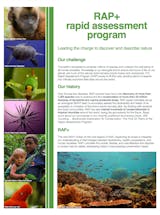
RAP+ Rapid Assessment Program
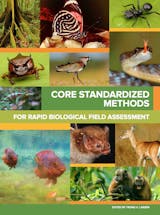
Core Standardized Methods for Rapid Biological Field Assessment
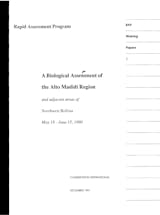
RAP 01
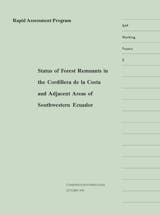
RAP 02
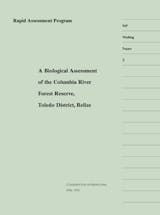
RAP 03
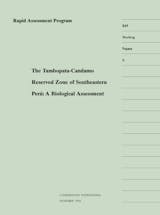
RAP 06
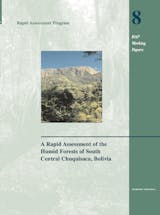
RAP 08

RAP 13
RAP 13
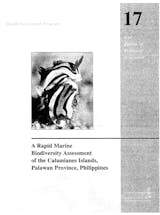
RAP 17
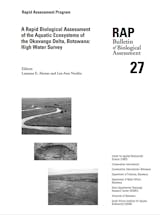
RAP 27
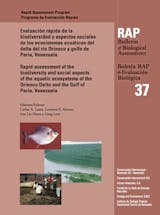
RAP 37
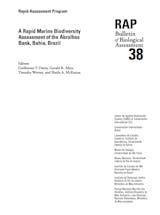
RAP 38
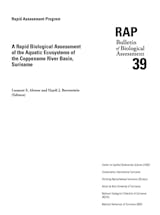
RAP 39
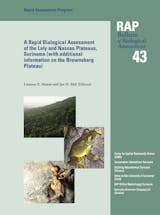
RAP 43
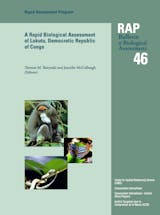
RAP 46
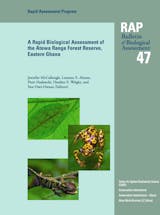
RAP 47
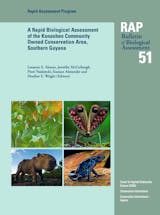
RAP 51
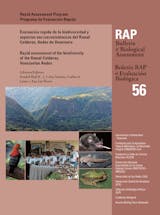
RAP 56
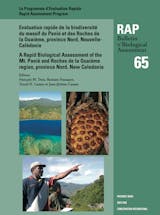
RAP 65
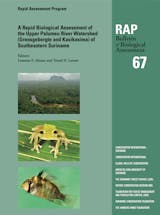
RAP 67
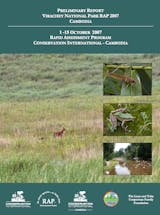
Preliminary Report Virachey National Park RAP 2007
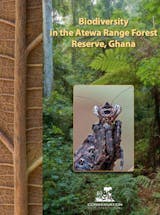
Biodiversity in the Atewa Range Forest Reserve, Ghana
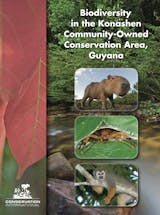
Biodiversity in the Konashen Community-Owned Conservation Area, Guyana
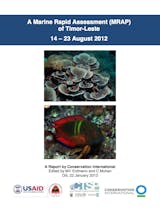
Marine Rapid Assessment (MRAP) of Timor-Leste
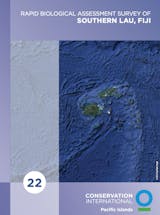
Rapid Biological Assessment Survey of Southern Lau, Fiji
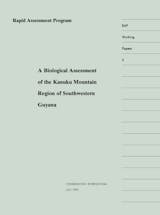
Biological Assessment of the Kanuku Mountain Region of Southwestern Guyana
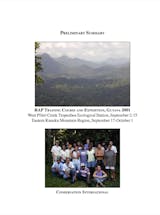
RAP Training Course and Expedition, Guyana 2001
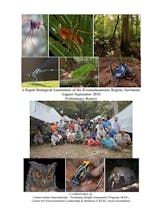
Rapid Biological Assessment of the Kwamalasamutu Region, SurinameAugust-September 2010




